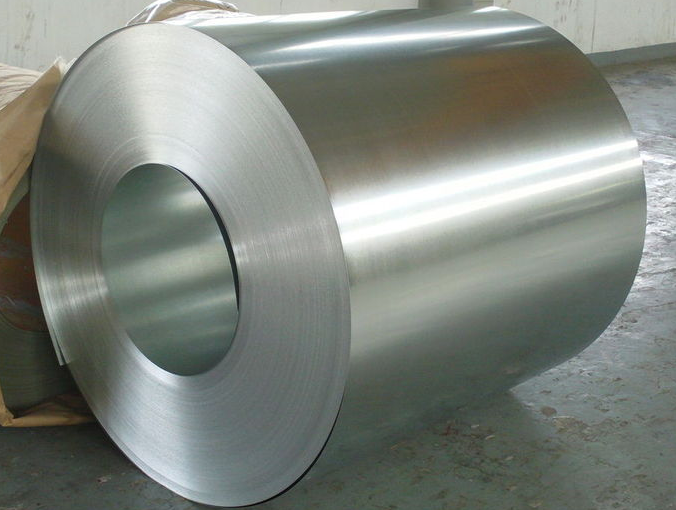Government/Policy

January 14, 2025
Coated steel trade case update: Postponements and new allegations
Written by Laura Miller
The steel industry may have to wait even longer for the initial duty determinations in the pending coated steel trade case.
Preliminary antidumping duty (AD) determinations from the US Department of Commerce are currently due by Feb. 12.
However, on Jan. 10, domestic petitioners asked Commerce to postpone issuing its AD margin decisions until April 3, according to court documents reviewed by SMU. That’s the maximum amount of time allowed by US trade law.
“Postponement of the preliminary determinations is necessary and appropriate given the size and complexity of these investigations, the number of participating respondents, and the numerous extensions of time received by respondents to submit responses to Commerce’s initial questionnaire,” legal counsel representing the domestic petitioners wrote in their request to Commerce.
The US petitioners making the request were Steel Dynamics Inc. (SDI), Nucor, U.S. Steel, Wheeling-Nippon Steel, and the United Steelworkers (USW) union.
The group initially filed the unfair trade petitions in September, asking for dumping investigations of corrosion-resistant steel (CORE) products from Australia, Brazil, Canada, Mexico, the Netherlands, South Africa, Taiwan, Turkey, the United Arab Emirates, and Vietnam. Subsidy investigations were also requested for Brazil, Canada, Mexico, and Taiwan.
(Note that Nucor is not a part of the petitions seeking duties on CORE from Mexico, while SDI and Nucor are the only ones seeking duties on Canadian CORE.)
The petitions allege average dumping margins ranging from as low as 12.7% for the Netherlands to as high as 195.23% for Vietnam. A table showing the full scope of the asserted dumping margins can be found here.
Alignment of final AD/CVD decisions
At present, Commerce’s preliminary countervailing duty (CVD) determinations are due by Feb. 3. They had originally been scheduled for release in late November but were postponed until February at the request of petitioners.
Remember that the collection of duties on galvanized and Galvalume steel imports won’t begin until Commerce’s initial margin decisions.
On Jan. 6, the petitioners in the CVD investigations asked Commerce to align the final subsidy and dumping decisions.
“Petitioners understand that alignment will result in a gap period for the collection of provisional duties and that the gap period will be extended if the deadline for the antidumping determination is further postponed,” legal counsel for the group said in letters to Commerce.
Thus, if the agency obliges the petitioners’ requests, it will not release the final AD and CVD margin determinations until mid-June.
Case timeline
Below is the current timeline for these investigations, as well as the likely new timeline if approved by the Commerce Department.
| Event | Current due date | If postponement/alignments approved, new due date |
|---|---|---|
| DOC preliminary CVD margin determination | Feb. 3 | Feb. 3 |
| DOC preliminary AD margin determination | Feb. 12 | April 3 |
| DOC final CVD margin determination | April 19 | June 17 |
| DOC final AD margin determination | April 28 | June 17 |
| ITC final CVD injury determination | June 3 | August 1 |
| ITC final AD injury determination | June 12 | August 1 |
New subsidy allegations
Additionally, petitioners have made a host of new subsidy allegations in the CVD investigations against Canada, Brazil, Mexico, and Vietnam.
“Petitioners respectfully request that the Department initiate an investigation into the new subsidy programs detailed in” the submissions, they wrote to Commerce.
For Brazil, they point out additional value-added tax deferrals, subsidized natural gas supplies, and aid for the development of railroads that have benefited Brazilian CORE producers Usminas and CSM.
SDI and Nucor’s legal counsel also requested a probe of energy efficiency and workforce-related programs that are benefitting Canadian producers and exporters of CORE.
Among the additional subsidy allegations for Vietnam, petitioners ask Commerce to investigate the country’s industrial policies, corporate tax incentives, preferential tax rates for R&D and large investment projects, and preferential lending programs.
Interestingly, among the additional subsidy allegations for Mexico, petitioners allege that Ternium mining affiliates are benefiting from the presence of cartels in the regions it operates.
“The theory here seems to be that Ternium somehow benefits from an alleged state of anarchy, and that it benefits in a way that is actionable under U.S. countervailing duty law,” Ternium’s legal counsel said in a filing in response to the allegations.
Ternium refutes this, however, noting that it has always disclosed the criminal activity as a risk to its business: “Far from benefiting Ternium in any way, Ternium and other Mexican companies must try to be commercially successful despite some of the problems that petitioners describe.” (Emphasis theirs.)
Ternium’s legal counsel doesn’t believe any of the new subsidy allegations meet the statutory requirements and should, therefore, not be considered by Commerce.







